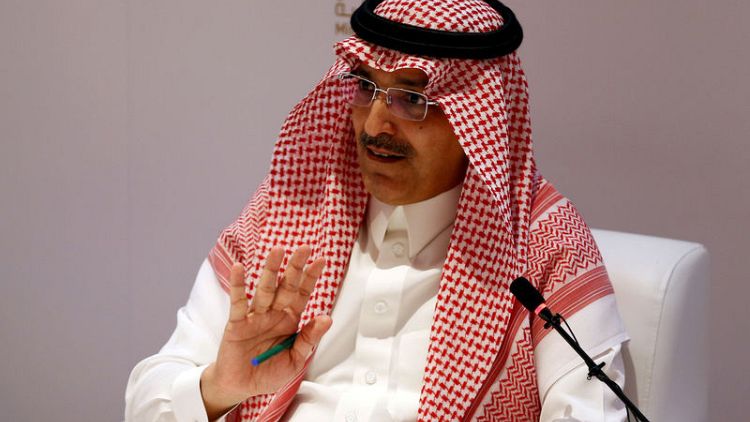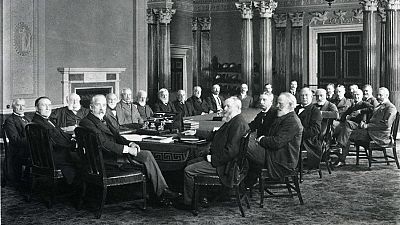By Andrew Torchia
RIYADH (Reuters) - Saudi Arabia intends to balance its state budgets over the medium term but remains willing to accept deficits if they are needed to spur economic growth, Finance Minister Mohammed al-Jadaan said on Thursday.
The government has announced it will eliminate the budget gap, officially projected at 148 billion riyals ($39.5 billion) this year, by 2023 through reforms such as taxes and fees, subsidy cuts and efficiency measures.
But Jadaan said that even after 2023, the government would not necessarily aim for a balanced budget every year if oil prices were volatile. Instead, it would eliminate the deficit as calculated over a period of years.
"In a country where we are still heavily reliant on revenues from one commodity, which is very cyclical and volatile, you can't expect that every year you will balance your budget," he said in an interview on the sidelines of a business conference.
"I want to make sure that I have a balanced budget in the mid-term, but I don't mind deficits if that means supporting growth, supporting the private sector investments, supporting services that are provided for the people, and investing in infrastructure."
Riyadh will only start looking seriously at maintaining a balanced budget continuously by 2030, when reforms to diversify the economy should have reduced the government's dependence on oil export revenues, Jadaan said.
In August, the International Monetary Fund released a paper on potential rules that Saudi Arabia might adopt to regulate its budgets in the long term - limits designed to make state finances sustainable regardless of oil prices.
The government is looking at possible rules, but has no intention of adopting them now as it wants to be able to respond flexibly to economic conditions, Jadaan said on Thursday.
"We are talking to the IMF and others, but we don't want for now, for example this year or next year, to have it as a law," he said.
KHASHOGGI EFFECT
However, he noted the government was already committed to some spending parameters; it has told investors public debt will not exceed 30 percent of gross domestic product, and is keeping budget spending overruns to about 5 percent of the original plan, compared to 20 to 25 percent in the past.
Yields on some of the government's dollar bonds rose over 30 basis points this month, partly because of pressure on emerging market debt in general and partly because of the international furore over the killing of Saudi journalist Jamal Khashoggi at the Saudi consulate in Istanbul.
Jadaan said the volatility would not change Riyadh's issuance strategy. "I don't see any meaningful change to our plans ... Investors ultimately will go back to the fundamentals, and the fundamentals are very, very strong."
Non-oil revenue in the third quarter jumped 48 percent from a year earlier while spending increased 25 percent, Jadaan told the conference earlier in the day.
Fahad al-Saif, president of the Saudi Debt Management Office, said officials would focus in the coming year on ensuring riyal government debt was held by a wide range of investors, not only banks, and on stimulating trade in the secondary market.
"Now we are actually reaching out to the investors - we are speaking to endowments, mutual funds, discretionary portfolios, insurance companies. We wanted to ensure we have more of these long funds so we can extend the yield curve accordingly."
In July, the government began selling riyal Islamic bonds through primary dealers responsible for quoting prices to other investors. Saif said authorities were asking the primary dealers to convince buyers that the paper could be traded for liquidity management, not just as a buy-to-hold investment.
(Reporting by Andrew Torchia; editing by Andrew Roche)



